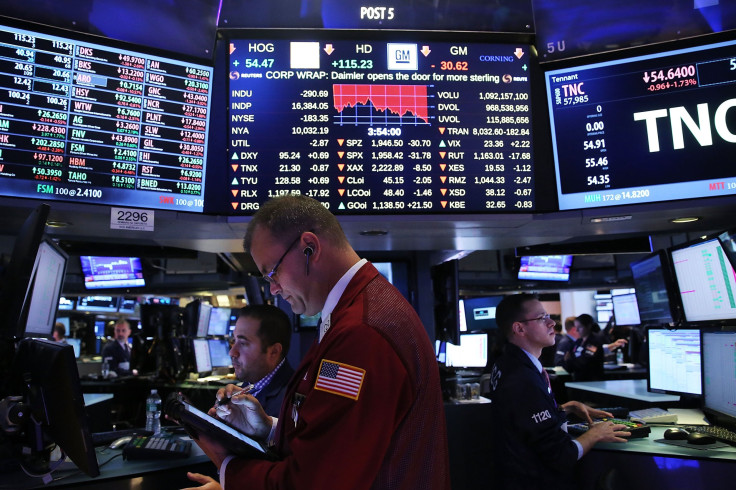Dow Jones Industrial Average Sheds Nearly 300 Points After The US Fed Decision Spurs A Global Sell-Off

U.S. stocks closed sharply lower Friday in the wake of Thursday’s Federal Reserve decision to keep its target rate low, elevating concerns that the global economy is faltering too much to begin raising U.S. borrowing costs. All 10 major sectors closed in the red, led by energy and industrial stocks.
“The Fed has let everyone know that, even with the ongoing U.S. recovery, it is still not confident enough to move policy away from emergency levels,” said Brad McMillan, chief investment officer for Commonwealth Financial Network, in a note Friday. “By attributing this to international markets, it raises very serious questions as to just how weak those economies and markets are — which increases uncertainty, and hurts markets, across the board.”
The Dow Jones Industrial Average (INDEXDJX:.DJI) shed 289.95 points, or 1.74 percent, to drop to 16,385. The Standard & Poor's 500 index (INDEXSP:.INX) fell 32.12 points, or 1.61 percent, to 1,958. The Nasdaq composite (INDEXNASDAQ:.IXIC) dropped 66.72 points, or 1.36 percent, to 4,827.
Merck & Co. Inc. (NYSE:MRK), the global healthcare company, Caterpillar Inc. (NYSE:CAT), the construction and mining giant, and Goldman Sachs Group Inc. (NYSE:GS), the bank holding company, led declines of S&P 500 listed companies.
The U.S. benchmark 10-year Treasury yields fell nearly 4 percent as demand for safe-harbor investment jumped Friday. Oil prices traded ended the week down on concern over global demand. West Texas Intermediate crude, the benchmark for U.S. oil prices, fell 4.2 percent to $44.93 per barrel for October delivery on the New York Mercantile Exchange. On the London ICE Futures Exchange, Brent crude lost 2.85 percent to $47.68 a barrel.
"Clearly they've [the Federal Reserve] given up on any acceleration in the U.S. economy in the second half of this year compared to the first half of this year," said Stuart Hoffman, chief economist at PNC.
© Copyright IBTimes 2024. All rights reserved.












